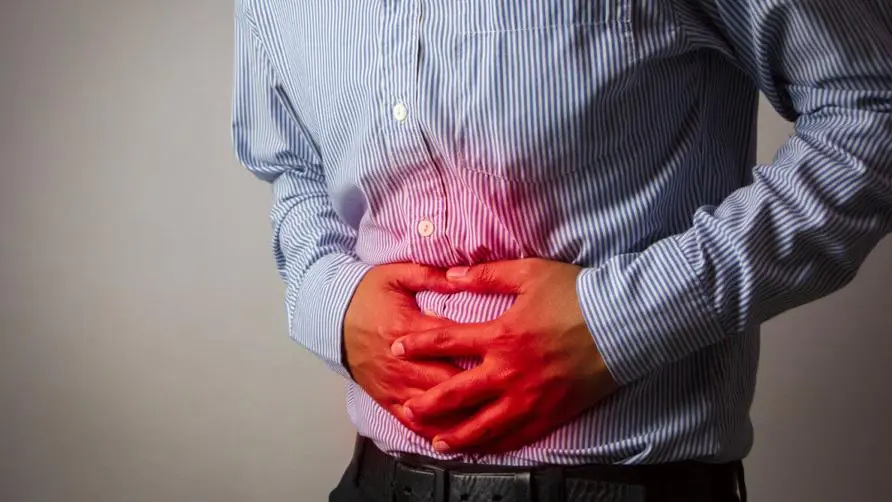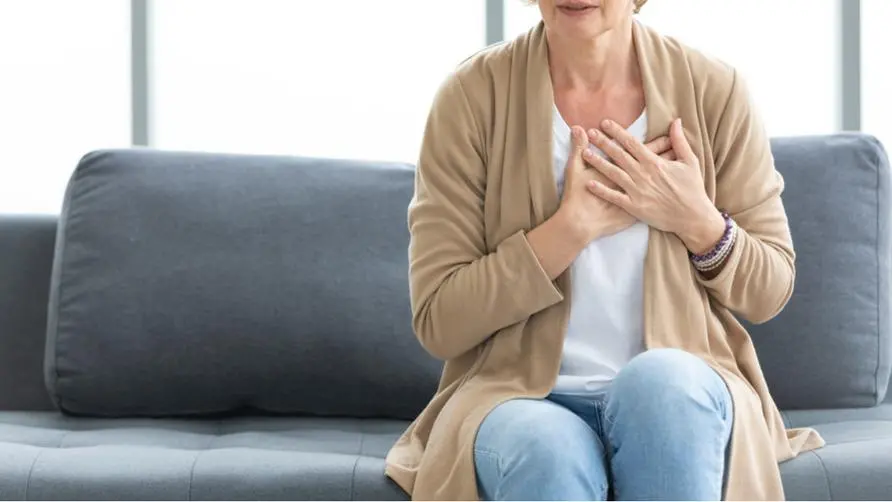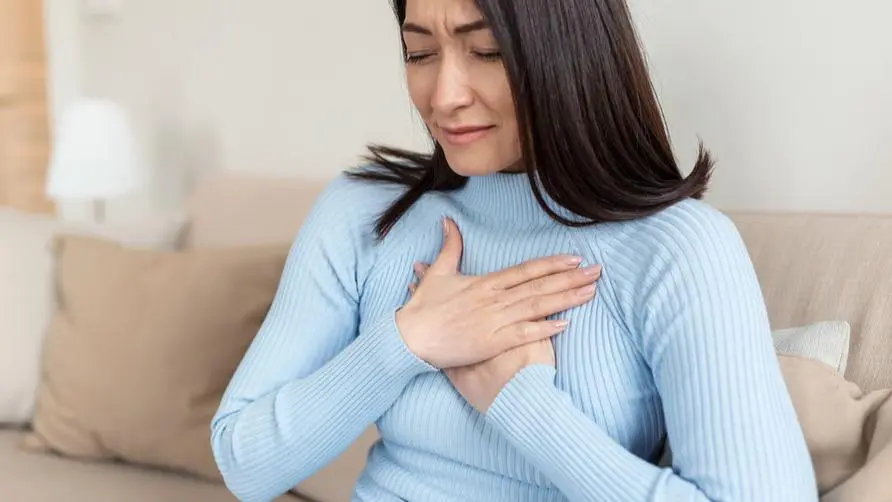Stomach pain that won't go away may be a warning sign of cardiac hypoxia! What are the dangers of blood clots blocking arteries and veins?

Why do blood clots occur? Are arterial and venous thrombosis conditions different?
“Thrombus” is closely related to many cardiovascular problems. Why does thrombosis occur? Dr. Chen Jieyu, Department of General Cardiology, Cardiovascular Center, Cathay General Hospital, said that thrombus is actually a protective mechanism of the body. When the body bleeds, it will initiate a blood coagulation reaction and form thrombi and blood clots to prevent bleeding. When long-term blood circulation is poor or risk factors are poorly controlled, blood clots may form in arteries and veins and cause disease.
Dr. Chen Jieyu pointed out that under certain unexpected conditions, such as sudden contraction and relaxation of blood vessels leading to rupture of arterial plaques, impurities on the wall of the tube enter the lumen, which will initiate a coagulation reaction and produce thrombi and blood clots. When thrombosis and blood clots in the arterial thrombosis system block the brain, they can cause stroke or cerebral infarction. When they block the heart, they can cause myocardial infarction. When they block the intestines, they can cause intestinal stroke. When they block the feet, they can cause foot stroke.
Blood clots may also occur in veins. Dr. Chen Jieyu explained that “deep venous thrombosis” may occur when blood flow becomes poor, viscosity increases, blood vessels have been injured, or veins degenerate. People who sit, stand for long periods of time, and are obese are at higher risk. Deep venous thrombosis will not only cause unexplained pain and edema in the feet, but once the blood clot flows to the pulmonary artery, it may cause pulmonary embolism, which can be life-threatening in severe cases.
Blood clot risks and symptoms? Mistaking stomachache for blood clot causing lack of oxygen to the heart?
What factors increase the chance of thrombosis? Dr. Chen Jieyu reminded that the main risk factors for blood clots are high blood pressure, high blood sugar, and high blood lipids, as well as obesity, smoking, and prolonged sitting and standing, which are closely related to lifestyle and eating habits. Some people like to overeat, which may also lead to excessive obesity and increase the risk of blood clots. Abnormal work and rest, such as going to bed late or staying up late, can also affect body metabolism, increase the chance of obesity, and are directly or indirectly related to blood clots.
“Thrombi may indeed cause fatal symptoms. When myocardial infarction or fatal arrhythmia occurs, emergency treatment must be carried out as soon as possible.” Dr. Chen Jieyu pointed out that when blood clots cause brain stroke, patients may have unclear speech, hemiplegia, Acute symptoms such as crooked eyes and mouth. When cardiovascular obstruction occurs, out of breath, chest tightness, chest pain, cold sweats, and dizziness may occur.
In addition, if a blood clot blocks the intestinal artery, it may cause intestinal necrosis and intestinal obstruction, leading to the “blackening” of the entire intestine and even sepsis and shock. There are also patients who suffer from hypoxia in the lower wall of the heart due to blood clots, but mistakenly think it is upper abdominal pain and treat it as gastroesophageal reflux or gastric ulcer. This shows that everyone perceives symptoms differently and is easy to ignore warning signs of blood clots.
How to prevent blood clots? If the three highs do not improve within 3 to 6 months, treatment should be given
How to prevent thrombosis in daily life? Dr. Chen Jieyu suggested that the most important thing is to develop health awareness and pay attention to the three high blood pressure problems during regular health check-ups. If you have high blood pressure, high blood sugar, and high blood lipids and cannot be improved through lifestyle in 3-6 months, you should intervene with drugs. Treatment, nutritional counseling and exercise training.
Smokers should quit smoking. People who sit and stand for long periods of time are recommended to wear elastic stockings to reduce the chance of blood pooling in the lower body. Eat a diet with less oil and sugar to avoid excessive obesity.
Further reading:
Is running a marathon likely to cause sudden cardiac death? Is CPR not enough when you faint due to arrhythmia?





